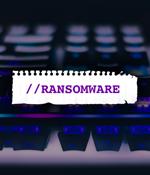Security News

Developing an effective strategy is a continuous process which requires recurring evaluation and refinement Partner Content A cyber defense strategy outlines policies, procedures, and technologies...

There’s a natural human desire to avoid threatening scenarios. The irony, of course, is if you hope to attain any semblance of security, you’ve got to remain prepared to confront those very same...

Among Gartner's top predictions are the collapse of the cybersecurity skills gap and the reduction of employee-driven cybersecurity incidents through the adoption of generative AI. Two-thirds of global 100 organizations are expected to extend directors' and officers' insurance to cybersecurity leaders due to personal legal exposure. "As we start moving beyond what's possible with GenAI, solid opportunities are emerging to help solve a number of perennial issues plaguing cybersecurity, particularly the skills shortage and unsecure human behavior. The scope of the top predictions this year is clearly not on technology, as the human element continues to gain far more attention. Any CISO looking to build an effective and sustainable cybersecurity program must make this a priority," said Deepti Gopal, Director Analyst at Gartner.

Instead of investing time in formulating non-binding pledges rather than working on actionable solutions, the US Government should adopt a more proactive stance by directly procuring advanced cybersecurity tools. By spearheading the implementation, through investment and education, the government can set a powerful example for the private sector to follow, thereby reinforcing the nation's cyber infrastructure.

Humans are complex beings with consciousness, emotions, and the capacity to act based on thoughts. In the ever-evolving realm of cybersecurity, humans consistently remain primary targets for...

In this Help Net Security interview, Carl Froggett, CIO at Deep Instinct, discusses emerging trends in ransomware attacks, emphasizing the need for businesses to use advanced AI technologies, such as deep learning, for prevention rather than just detection and response. What are the emerging trends in ransomware attacks, and how should businesses prepare for them using AI technologies?

Strengthening your cyber defenses can be a daunting task. Where do you start? Which tools do you use? How much will it cost? And, what do you risk losing if you do nothing? It’s not always easy to...

While APIs are essential to many operations and used extensively, a lack of prioritization and understanding is leading us towards a growing API security crisis, according to a report by Traceable AI and Ponemon Institute. Plus, 57% of respondents feel traditional security solutions, including web application firewalls, can't effectively distinguish genuine from fraudulent API activity.

While the digitalization of manufacturing operations provided transformational opportunities and greater efficiency and sustainability, it also connected manufacturing environments and infrastructures that operated historically as isolated silos with limited external connectivity. How do cyber threats in the manufacturing sector differ from those in other industries, and what unique challenges do manufacturers face in implementing cybersecurity measures?

Japan is also revising its cyber security strategy according to Nikkei. Japan's Aerospace Exploration Agency announced last week it has started conceptualizing a satellite refueling service with private Japanese orbital debris removal company, Astroscale.